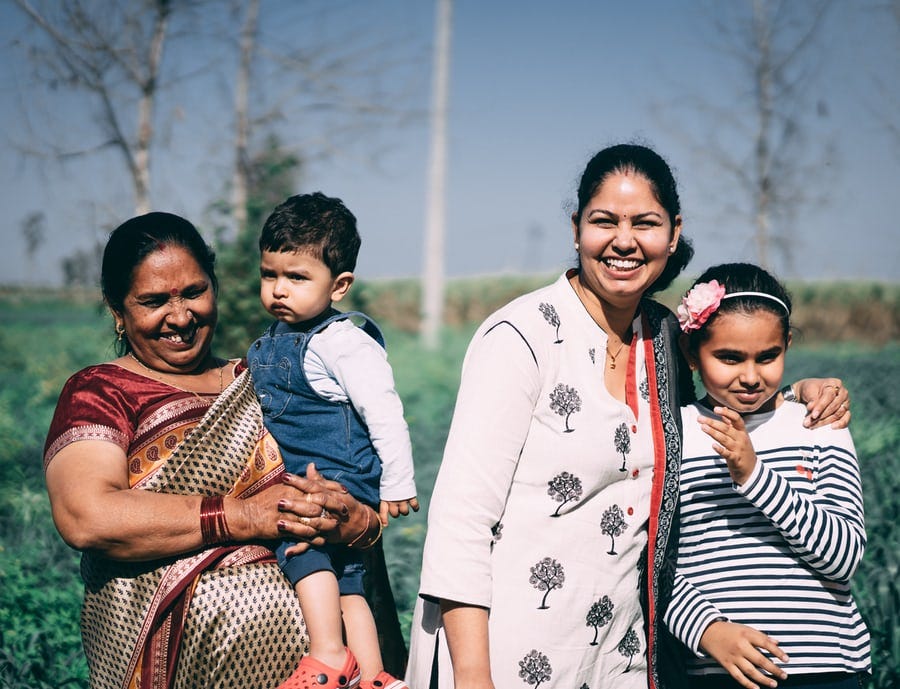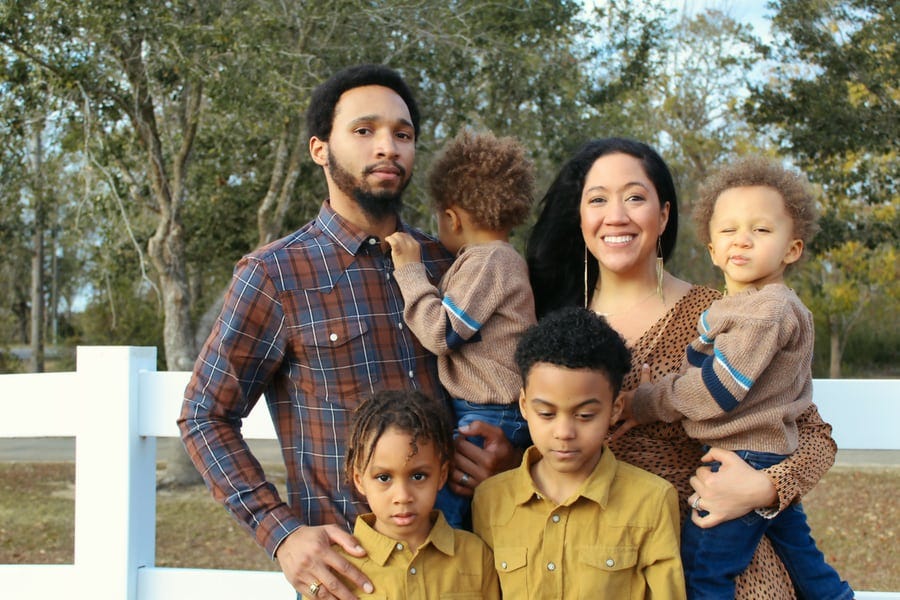Children are a true blessing. They light up our world and make it go round.
You can learn a thing or two from a toddler. Never understate what youngsters can teach you, especially if you want to stop sweating the small stuff and add some humor into your life.
According to the cost benefit analysis, no matter how annoying, stubborn, lazy, silly, you name it children may be, they will (almost) always outweigh the costs, except for the real cost.
If there’s one thing you get out of this article it is:
A) Just because others have it, doesn’t mean you should
B) Everything is more expensive than it seems
Parents are serious about having kids. It’s part of every culture and a couple without kids is unfortunately looked down upon despite being a realistic prudent choice to make for those who don’t have the means.
Kids are darn expensive. The more kids you have, the more you should be worth, although for a majority of families in this world, that’s not the case whatsoever.
In fact, it’s the opposite.
I’m not sure if low-income families choose to ignore planning for the future or are ignorant to the cost of kids due to their lack of financial literacy?
Do they believe all the happiness they receive from their newborn will magically make them wealthier and cry their sorrows away?
For money sake, the more you have (spend), the less you have and the ROI from a child can be plentiful a few decades down the road but getting to that stage can be a burden especially if parents don’t have the means to get to that point and make it possible.

Child Cost
Parenthood is tough for countless reasons but usually worth it in the end.
Sacrifice brings greatness after all.
Especially with a newborn, sleepless nights, temper tantrums and whining tends to gradually get better overtime. Yet one thing that digs deep and doesn’t always alleviate is the pain of spending.
Every parent wants the best for their child and wishes they could get them the top nutrients, care, products and items that bring the most ROI, yet we tend to forget even tiny baby items add up no matter the size.
The median net worth for Americans is $121,760, according to the Federal Reserve with an average annual salary of $70k, this is far below what it takes in this day in age to raise a child until 18. With inflationary pressure nearing 2%, tuition, gas, food and practically everything else rising except for wages, this is impossible for most people to afford.
With only 30% of Americans holding onto $1k of savings or above, the rest of Americans should be concerned they won’t make it pre-retirement or the next pandemic.
With more kids, families need to spend less, earn more, save more for retirement and college while still providing the best for their kids. That is virtually impossible as children cost more and is hard to manage considering most aren’t equipped financially yet they take the leap of faith and do it anyway.
You can’t be as happy as you would be with financial independence and freedom. Money doesn’t have to evolve around your life but it’s included in almost every part of it. It’s a tool and if you want to control it not let it control you, you have to live below your means before living the American Dream. An average child from infant to 18 years old costs $300k.Read here into the specifics. This is 3x more than the average net worth and families seem to get by by going into debt, eating at McDonalds, borrowing money from family and living in dire constraints just to raise a child. Doesn’t make sense.
For the critics who say, “life is short” and “kids come first, finances second”, all I’ll say is good luck to you. Go have kids, be in debt unable to pay rent each month, provide food on the table and let’s see if you’ll still want them struggling with you.
It’s not so fun until it hits that’s why planning for the worst, hoping for the best is your best bet. Time isn’t running as fast as you think it is. FOMO doesn’t exist and is hurting your bank account.

Baby Boss
Growing up in an upper-class community in NY, majority of my friends were either single or second children. Although their parents could hire a nanny, housekeeper/cleaner and pay her shy of a first-year analyst’s salary straight out of school, they still decided to take care of the kids themselves because they value family time, financial freedom and safety and want to make sure their kids understand the importance of saving before making any major life decision such as having kids.
There’s no impulse to make the family more crowded because quality over quantity matters more to them. It’s not about the cost outweighing the benefits for kids rather the likelihood and future expectation of what their portfolio would look like was considered. With more than 3 kids earning an average salary slave to your time with W2 income giving almost half of it away in taxes, you’re going to have an incredibly hard time with everything later on in life including your kids.
Are kids more important than money?
You shouldn’t have kids without it but when you do have them you can make them a priority because you have money.
Money doesn’t have to control our lives. It’s a tool not an addiction. Four years in college is estimated to cost around half a million for one student by 2040 and with inflationary pressure, everything will be more expensive.
So why go broke with an extra child when you can live comfortably with 1 less?
I don’t understand families with more than one child living on the poverty line. It’s all in their control and they are digging themselves into a deeper hole practically begging to get into more debt.
For the families that I have spoken to with more than 3 children, the reason being is:
1) They wanted at least one of each gender
2) Having kids is a numbers game. The more you have, the likelier one will become the next Bezos and supply the family everything for the rest of their lives not needing to work
I understand the first reason, but the second?? Really?? I’m not here to shame people with more than one child. Do whatever you please. This is simply a financial recommendation to be able to comfortably live with your child and not starve while they grow up.
Be appreciative of what you have. They are more work than you think and you won’t appreciate them if you are miserable. Stop focusing on what you don’t have and be appreciative of what you do have.
The second statement is equivalent to saying, “let’s play the lottery 3x a daily for the rest of our lives. The more we play, the better shot we got!”
Your chances don’t get better and the lottery doesn’t get easier if you play more. It’s the same thing with kids.

Chances
Parents’ ultimate goal is to have their kids grow up and become more successful than them since they sacrifice their lives for another human. An inspirational and emotional story I always think of when it comes to parenting is from Cristiano Ronaldo’s parents. He’s a renowned global superstar soccer player whose mother gave up everything including their home, job, livelihood to take him to daily soccer practice and mentor/coach him in hopes of becoming a global soccer player one day.
It seemed to work in her favor but it doesn’t always pay off.
Kids are lucky in their own ways and although parenting style to nutrition, quality education and curiosity play a vital role in where kids are headed, a few things are undermined which need to be highlighted.
But if she didn’t have a backup plan, they would’ve been toast.
Chances of Success
My definition of success is preparation meets opportunity.
What are the chances your child or sibling will become successful, earn their way to the top 1% and be able to support the rest of your family forever?
Short Answer: All I’m saying is don’t count on it. Expect it NOT to happen and plan on working for yourself and learn to save, spend and invest wisely for the rest of your lives on your own. You’ll feel fulfilled that way as well.
There’s no guaranteed percentage because there are countless unknowns and timing plays a huge part. One of the most crucial tips to always remember is to never be dependent on anyone. From a spouse to a rich sibling, they could cut you off anytime, file for divorce, etc. and you are left astray. Support yourself and always stay that way.
The types of Americans that are most likely to float around upper levels of income and be able to support the rest of their family include:
-Older folks
-White
-Married
-Educated for more than 12 years
-Lacking any work disability
-Have more than 1 child but less than 3

The Why
You may be asking about the title of the article. According to research and pure data, poorer families tend to have false expectations about what the future holds and don’t take into consideration all the costs that creep up with raising children.
But what’s deeper?
Is it purely out of ignorance, religion, morals, community, etc.?
Let’s take a look at the most common reasons low-income families have more children:
-More support comes from larger and bigger families-common in certain countries
-High child mortality rates
-Patriarchal values
-Lack of access to health services
-Misconceptions about family planning
-Lack of education
-Forced early marriages
-Social reputation
-Limited finances
-Low employment
-Care for elders
Are families getting poorer with more?
Well, the more expensive something is, the less you have to keep. When it comes to kids, the more you spend on them, the more they have, but the less money you have to take care of them so in hindsight it can go both ways.
Growing and starting a family is one of the ultimate moments in life. Raising a child is unlike any other experience and will always be cherished forever especially since they grow up way too fast. Taking into consideration your finances and what you plan to spend is essential no matter how awkward or bad it may feel to compare finances to a child. Realistically it’s the best and smartest choice. Money is involved everywhere and it will provide your child a better life when you’re prepared.
I cannot stress enough how vital it is to have the means to take care of a child. Their emotions are as high as the bill so make sure to account for spending more than anticipated and your time which cannot be replaced nor purchased.

